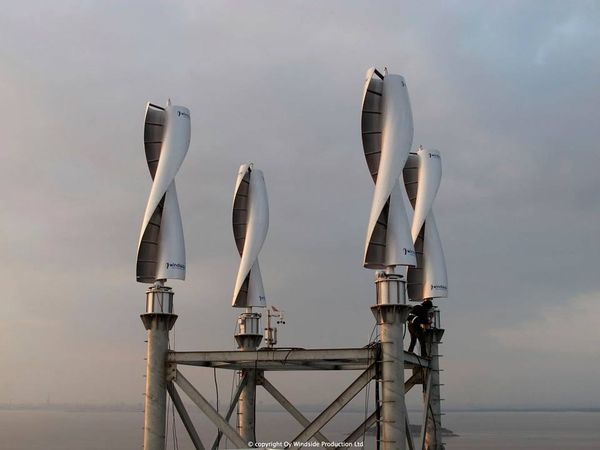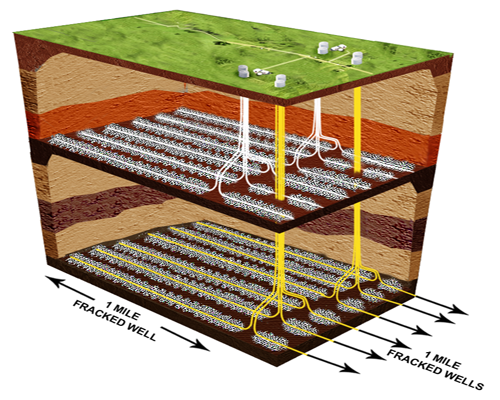The economic case for scrapping fossil-fuel subsidies is getting stronger
Jul 18, 2014 22:12:07 #
Jul 18, 2014 22:20:55 #
dirtpusher wrote:
http://www.economist.com/news/finance-and-economics/21593484-economic-case-scrapping-fossil-fuel-subsidies-getting-stronger-fuelling
Are you registered at this site? My computer wouldn't let me go past a couple sentences. It said I could register and get three articles a week???
Jul 18, 2014 22:26:11 #
ok....try this...
Fuelling controversy
The economic case for scrapping fossil-fuel subsidies is getting stronger
Jan 11th 2014 | From the print edition
Timekeeper
OVER the past year energy subsidies have become a target for politicians on austerity drives. In June Indonesia increased petrol prices by 44% to cut its annual subsidy bill of $20 billion. More recently Malaysia followed suit, in the hope of filling a budget hole which had reached 4.5% of GDP. It slashed petrol subsidies, and on January 1st household energy bills went up by 15%. Countries such as Egypt and India are considering similar measures to reduce their growing budget deficits; Egypts is now at 14% of GDP.
It is the growing cost of subsidies, rather than worries about climate change, that explains the renewed interest in cutting them, says Fatih Birol at the International Energy Agency (IEA). They have become unaffordable as global oil prices have more than doubled between 2009 and 2012. In Jordan, for instance, their cost increased more than tenfold in just two years. And in many other countries they now account for more than 5% of GDP.
Globally, the cost of government subsidies for fossil fuels increased from $311 billion in 2009 to $544 billion in 2012, the IEA estimates. Once lost tax revenues are included, this figure rises to around $2 trillion, equal to over 8% of government revenues, according to a recent IMF report.
Other research suggests that most of this spending leads to big deadweight losses, meaning lost economic efficiency as a result of government intervention. In the case of fuel subsidies for road transport, worth $110 billion globally in 2012, these losses reached $44 billion, reckons Lucas Davis at the University of California, Berkeley, in a new paper.
Yet it is not only that the economic cost of subsidies is at a new high. The case for cutting them this year is particularly strong. Countries with high fuel subsidies are more exposed to external shocks, as holding down prices causes their budget deficits to explode, making them vulnerable to rising global interest rates. Cutting subsidies now would help them prepare for when borrowing gets harder as quantitative easing ends. It would also leave more money for growth-boosting policies, such as infrastructure investment.
Inequality would be reduced, too. IMF research shows that only 7% of fuel subsidies in poor countries go to the bottom 20% of households; 43% end up in the pockets of the richest 20%. Petrol subsidies are particularly regressive (and polluting, see picture), as richer people are more likely to drive cars. Money saved could be spent on targeted cash-transfer schemes for the poor, as is done in Malaysia.
Subsidy cuts are widely associated with higher inflation: energy costs rise. But in a world of falling inflation the risks this poses are lower. The IMF forecasts that Malaysias cuts will push up its inflation rate only slightly, from 2% in 2013 to 2.6% this year. While it may put a dent in real wages, slightly higher inflation would chip away at the countrys public debtand help its government avoid a breach of its statutory debt ceiling of 55% of GDP.
Whether more countries will follow the lead of Indonesia and Malaysia, however, does not depend only on economics. On New Years Eve thousands turned out in Kuala Lumpur, Malaysias capital, to protest against the cuts. And in Indonesia public opinion has put politicians under pressure to roll back some of the reforms this year. When it comes to cutting subsidies, politics can still trump even the best economic or environmental arguments.
Fuelling controversy
The economic case for scrapping fossil-fuel subsidies is getting stronger
Jan 11th 2014 | From the print edition
Timekeeper
OVER the past year energy subsidies have become a target for politicians on austerity drives. In June Indonesia increased petrol prices by 44% to cut its annual subsidy bill of $20 billion. More recently Malaysia followed suit, in the hope of filling a budget hole which had reached 4.5% of GDP. It slashed petrol subsidies, and on January 1st household energy bills went up by 15%. Countries such as Egypt and India are considering similar measures to reduce their growing budget deficits; Egypts is now at 14% of GDP.
It is the growing cost of subsidies, rather than worries about climate change, that explains the renewed interest in cutting them, says Fatih Birol at the International Energy Agency (IEA). They have become unaffordable as global oil prices have more than doubled between 2009 and 2012. In Jordan, for instance, their cost increased more than tenfold in just two years. And in many other countries they now account for more than 5% of GDP.
Globally, the cost of government subsidies for fossil fuels increased from $311 billion in 2009 to $544 billion in 2012, the IEA estimates. Once lost tax revenues are included, this figure rises to around $2 trillion, equal to over 8% of government revenues, according to a recent IMF report.
Other research suggests that most of this spending leads to big deadweight losses, meaning lost economic efficiency as a result of government intervention. In the case of fuel subsidies for road transport, worth $110 billion globally in 2012, these losses reached $44 billion, reckons Lucas Davis at the University of California, Berkeley, in a new paper.
Yet it is not only that the economic cost of subsidies is at a new high. The case for cutting them this year is particularly strong. Countries with high fuel subsidies are more exposed to external shocks, as holding down prices causes their budget deficits to explode, making them vulnerable to rising global interest rates. Cutting subsidies now would help them prepare for when borrowing gets harder as quantitative easing ends. It would also leave more money for growth-boosting policies, such as infrastructure investment.
Inequality would be reduced, too. IMF research shows that only 7% of fuel subsidies in poor countries go to the bottom 20% of households; 43% end up in the pockets of the richest 20%. Petrol subsidies are particularly regressive (and polluting, see picture), as richer people are more likely to drive cars. Money saved could be spent on targeted cash-transfer schemes for the poor, as is done in Malaysia.
Subsidy cuts are widely associated with higher inflation: energy costs rise. But in a world of falling inflation the risks this poses are lower. The IMF forecasts that Malaysias cuts will push up its inflation rate only slightly, from 2% in 2013 to 2.6% this year. While it may put a dent in real wages, slightly higher inflation would chip away at the countrys public debtand help its government avoid a breach of its statutory debt ceiling of 55% of GDP.
Whether more countries will follow the lead of Indonesia and Malaysia, however, does not depend only on economics. On New Years Eve thousands turned out in Kuala Lumpur, Malaysias capital, to protest against the cuts. And in Indonesia public opinion has put politicians under pressure to roll back some of the reforms this year. When it comes to cutting subsidies, politics can still trump even the best economic or environmental arguments.
Jul 18, 2014 22:33:06 #
I wonder why they don't try different avenues of fuel such as solar. In those countries, they have a lot of sun. I know the initial cost would be a lot but it would provide jobs and make more fuel.
Recently, I saw large store parking lots with solar panels for roofs and the cars parked under them. I thought that was a good idea.
Recently, I saw large store parking lots with solar panels for roofs and the cars parked under them. I thought that was a good idea.
Jul 18, 2014 22:56:04 #
dirtpusher wrote:
http://www.economist.com/news/finance-and-economics/21593484-economic-case-scrapping-fossil-fuel-subsidies-getting-stronger-fuelling
I have no problem with dropping fossil fuel subsidies so long as all subsidies to all industries are also dropped. To selectively single out 1 industry is a criminal offense as it gives competitive industries an unfair advantage. The problem here is that if all subsidies were to end the economy would come to a very abrupt stop. Food would be unafordable, and unavailable. All transportation would simply stop. Every power plant would go dark. Do you want to live it that place?
Jul 18, 2014 23:15:20 #
boberic wrote:
I have no problem with dropping fossil fuel subsidies so long as all subsidies to all industries are also dropped. To selectively single out 1 industry is a criminal offense as it gives competitive industries an unfair advantage. The problem here is that if all subsidies were to end the economy would come to a very abrupt stop. Food would be unafordable, and unavailable. All transportation would simply stop. Every power plant would go dark. Do you want to live it that place?
is it right to get fair market price on some things such as manufacturing on others not. farmers have been loosing money for decades because of subsidies. farmers wish they could force the end to subsidies. big money is buying up bankrupt farms. guess people have to get hands dirty anf plant gardens. do you REALLY think oil subsidies are saving you money at pump. every time speculators think something goes a miss in the world. the prices shoot up. just like in iraq. iraq say there little if any oil flow hampered by fighting they in now.
Jul 18, 2014 23:19:38 #
boberic wrote:
I have no problem with dropping fossil fuel subsidies so long as all subsidies to all industries are also dropped. To selectively single out 1 industry is a criminal offense as it gives competitive industries an unfair advantage. The problem here is that if all subsidies were to end the economy would come to a very abrupt stop. Food would be unafordable, and unavailable. All transportation would simply stop. Every power plant would go dark. Do you want to live it that place?
farmers bare the effect of subsidies, but pay full price on new machinery.. is that really fair.
Jul 18, 2014 23:42:04 #
Bob,
You propose fairness and then you back away from it in fear. I'm guessing it is fair to say it is a very complicated issue. I don't know why clean energy is so scary to some. btw, Coal is NOT clean energy. Petroleum pipelines are still fossil fuel and they are not clean energy. Fracking is polluting our water table and it is not clean energy. The Nuclear Power plant in nearby San Onofre is now closed and the clean up and destruction of it is not going to be without long lasting consequences. It is not clean or safe energy. Any body remember Fukushima, Chernobyl, 3-mile Island to name a few?
Clean energy is profitable, it will provide new jobs, it won't get us or our children sick. If for no other reason, the last one ALONE should be reason enough to make them the best solution. Solar, Wind, tidal, are all free, clean and profitable for the bright people that can solve the science. It is not 'IN the future', it is being done already, in Germany. I have driven past Wind farms, solar collectors and I live reasonably close to the coast.
We can wait or we can vote our politicians out of office until they understand the need.
OR we can whine about it.
You propose fairness and then you back away from it in fear. I'm guessing it is fair to say it is a very complicated issue. I don't know why clean energy is so scary to some. btw, Coal is NOT clean energy. Petroleum pipelines are still fossil fuel and they are not clean energy. Fracking is polluting our water table and it is not clean energy. The Nuclear Power plant in nearby San Onofre is now closed and the clean up and destruction of it is not going to be without long lasting consequences. It is not clean or safe energy. Any body remember Fukushima, Chernobyl, 3-mile Island to name a few?
Clean energy is profitable, it will provide new jobs, it won't get us or our children sick. If for no other reason, the last one ALONE should be reason enough to make them the best solution. Solar, Wind, tidal, are all free, clean and profitable for the bright people that can solve the science. It is not 'IN the future', it is being done already, in Germany. I have driven past Wind farms, solar collectors and I live reasonably close to the coast.
We can wait or we can vote our politicians out of office until they understand the need.
OR we can whine about it.
boberic wrote:
I have no problem with dropping fossil fuel subsidies so long as all subsidies to all industries are also dropped. To selectively single out 1 industry is a criminal offense as it gives competitive industries an unfair advantage. The problem here is that if all subsidies were to end the economy would come to a very abrupt stop. Food would be unafordable, and unavailable. All transportation would simply stop. Every power plant would go dark. Do you want to live it that place?
Wind on the Water

Fracking - Underground

Well?

Jul 18, 2014 23:50:13 #
ArtzDarkroom wrote:
Bob, br You propose fairness and then you back awa... (show quote)
well said and only the tip.
If you want to reply, then register here. Registration is free and your account is created instantly, so you can post right away.



